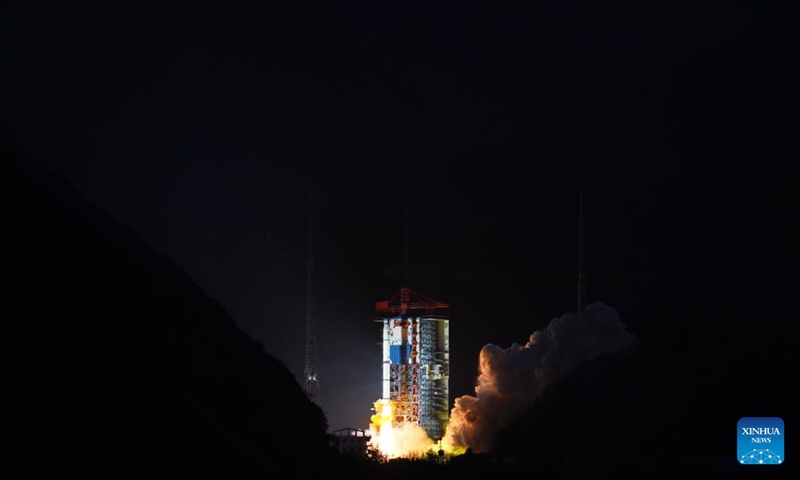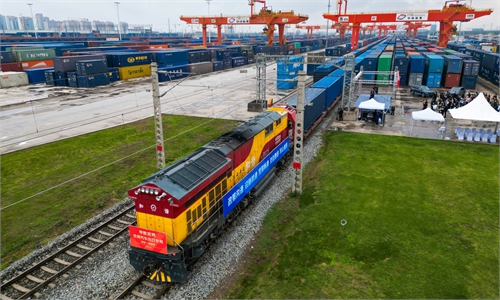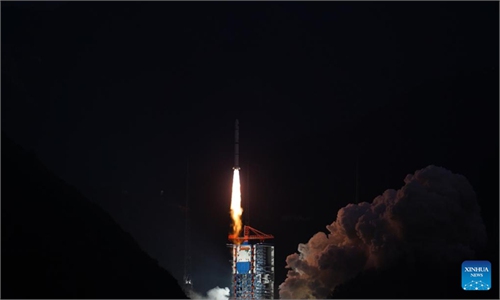China advances in satellite technology and autonomous driving with Geespace's latest launch

A Long March-2C carrier rocket carrying 11 Geely-02 constellation satellites blasts off from the Xichang Satellite Launch Center in southwest China's Sichuan Province, Feb. 3, 2024.
Geespace, a satellite technology company under Zhejiang Geely Holding Group, launched eleven satellites from Xichang Satellite Launch Centre in Southwest China's Sichuan Province, using Long March-2C carrier rocket on Saturday. This launch expands the company's satellite system and is expected to advance its autonomous driving technology, highlighting China's commitment to integrating satellite technology in advancing future mobility solutions.
Chinese auto maker Geely aims to build the world's first commercial satellite network that combines communication, navigation, and remote sensing, supporting a wide array of applications including autonomous driving.
China's satellite launch technology remains a global leader, with lower launch costs compared to other countries. This gives Chinese automakers the financial capability to push the development of satellite communication, Zhang Xiang, director of the Digital Automotive International Cooperation Research Center of the World Digital Economy Forum, told the Global Times on Sunday.
This recent expansion signifies China's growing capabilities in space technology, uniquely positioning Geespace as a pioneer in developing and managing a comprehensive satellite business model. The initiative underscores China's innovation in leveraging satellite communication to enhance various sectors, notably in supporting the development of autonomous and smart driving technologies.
Geely's satellite launch represented a shift of Chinese satellite launch, from industrial to civilian applications. The satellite is expected to provide satellite communications and high-precision satellite-assisted autonomous driving for vehicles under Geely's brand, Feng Shiming, a senior auto analyst based in Shanghai, told Global Times on Sunday.
By 2025, Geespace anticipates the full deployment of 72 satellites, aiming to establish a global real-time data communication network. This network will further expand to 168 satellites, offering high precision in positioning services, which is crucial for the development of autonomous driving systems. The initiative promises to enhance connectivity and reliability for autonomous vehicles, facilitating safer and more efficient transportation solutions.
Currently, there are two main approaches in achieving autonomous driving: one is a vision-based approach that relies on vision algorithms and sensors like LiDAR, and the other relies on high-precision maps. Geely's satellite system claims to offer centimeter-level precision positioning, which greatly aids in achieving autonomous driving, Feng explained.
China's advancement in satellite technology plays a critical role in supporting the nation's autonomous driving ambitions. As satellite communications offer a new dimension of data transmission, experts believe this technology will significantly contribute to the real-time responsiveness required for autonomous vehicles. This development is part of a broader push within China to lead in autonomous driving technology, with various companies making strides in intelligent driving services.
Vehicle-road collaboration, which demands high quality real-time communication, can help to achieve autonomous driving, and satellite systems could provide great communication link, Zhang noted.
Recent achievements in the autonomous driving sector, including the launch of unmanned taxi services by Chinese autonomous mobility company Pony.ai and the development of navigation technologies that do not rely on high-precision maps, announced by Chinese auto company Avatr using HUAWEI intelligent vehicle solution, reflect China's commitment to innovation in the car industry.
Currently, Chinese automakers are at the forefront of this technology internationally, with few companies offering satellite communication functionalities, Zhang said.
The integration of satellite technology into autonomous driving represents a significant leap forward, offering new opportunities for enhancing safety, efficiency, and connectivity, according to Geely. As China continues to invest in these cutting-edge technologies, it sets the stage for a new era in transportation, positioning itself as a leader in the global push towards autonomous and intelligent driving solutions.




